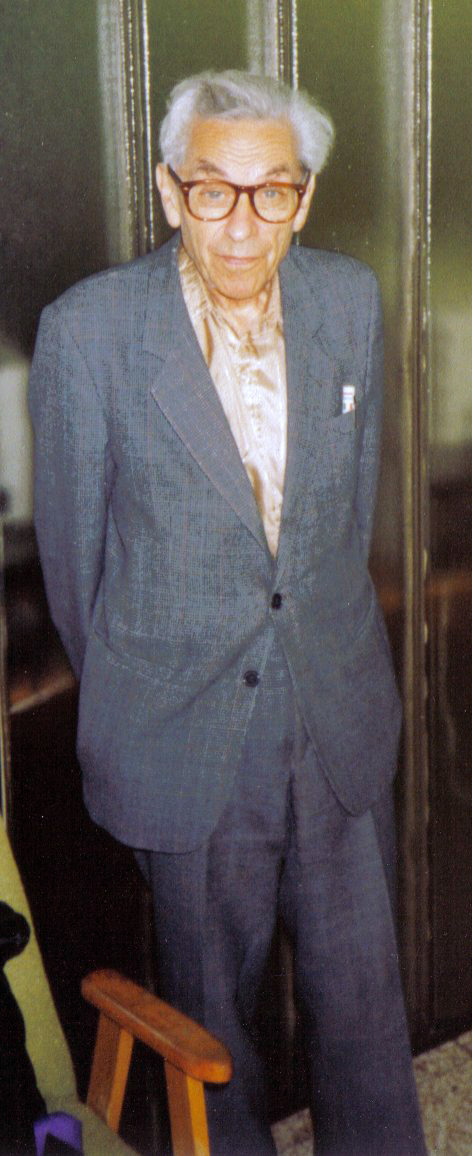The Man Who Loved Only Numbers on:
[Wikipedia]
[Google]
[Amazon]
 ''The Man Who Loved Only Numbers'' is a biography of the famous mathematician Paul Erdős written by Paul Hoffman. The book was first published on July 15, 1998, by Hyperion Books as a hardcover edition. A paperback edition appeared in 1999. The book is, in the words of the author, "a work in oral history based on the recollections of Erdős, his collaborators and their spouses". The book was a bestseller in the United Kingdom and has been published in 15 different languages. The book won the 1999 Rhône-Poulenc Prize, beating many distinguished and established writers, including E. O. Wilson.
''The Man Who Loved Only Numbers'' is a biography of the famous mathematician Paul Erdős written by Paul Hoffman. The book was first published on July 15, 1998, by Hyperion Books as a hardcover edition. A paperback edition appeared in 1999. The book is, in the words of the author, "a work in oral history based on the recollections of Erdős, his collaborators and their spouses". The book was a bestseller in the United Kingdom and has been published in 15 different languages. The book won the 1999 Rhône-Poulenc Prize, beating many distinguished and established writers, including E. O. Wilson.
 ''The Man Who Loved Only Numbers'' is a biography of the famous mathematician Paul Erdős written by Paul Hoffman. The book was first published on July 15, 1998, by Hyperion Books as a hardcover edition. A paperback edition appeared in 1999. The book is, in the words of the author, "a work in oral history based on the recollections of Erdős, his collaborators and their spouses". The book was a bestseller in the United Kingdom and has been published in 15 different languages. The book won the 1999 Rhône-Poulenc Prize, beating many distinguished and established writers, including E. O. Wilson.
''The Man Who Loved Only Numbers'' is a biography of the famous mathematician Paul Erdős written by Paul Hoffman. The book was first published on July 15, 1998, by Hyperion Books as a hardcover edition. A paperback edition appeared in 1999. The book is, in the words of the author, "a work in oral history based on the recollections of Erdős, his collaborators and their spouses". The book was a bestseller in the United Kingdom and has been published in 15 different languages. The book won the 1999 Rhône-Poulenc Prize, beating many distinguished and established writers, including E. O. Wilson.
How the book came about
Hoffman received an assignment by '' The Atlantic Monthly'' in 1987 to profile Erdős, which won theNational Magazine Award
The National Magazine Awards, also known as the Ellie Awards, honor print and digital publications that consistently demonstrate superior execution of editorial objectives, innovative techniques, noteworthy enterprise and imaginative design. Or ...
for feature writing. After this, Hoffman followed Erdős on his travels for the last 10 years of his life learning about his exceedingly unusual life and interviewing his numerous collaborators in the process of writing this book.
Content
A large part of the book concerns Erdős, but a lot of it is about other mathematicians, past and present, including Ronald Graham,Carl Friedrich Gauss
Johann Carl Friedrich Gauss (; german: Gauß ; la, Carolus Fridericus Gauss; 30 April 177723 February 1855) was a German mathematician and physicist who made significant contributions to many fields in mathematics and science. Sometimes refer ...
, Srinivasa Ramanujan
Srinivasa Ramanujan (; born Srinivasa Ramanujan Aiyangar, ; 22 December 188726 April 1920) was an Indian mathematician. Though he had almost no formal training in pure mathematics, he made substantial contributions to mathematical analysis, ...
, and G.H. Hardy. In the book, Erdős enjoys listening to Hardy when he speaks about Ramanujan. Hoffman also tries to give examples of what mathematics is and why he views it as important, and why many mathematicians such as Erdős devote their whole lives to mathematics. It also contains some history of Europe and the United States of Erdős's time.
The book, on the whole, portrays Erdős in a favourable light, pointing out his many endearing qualities, like his childlike simplicity, his generosity and altruistic nature, his kindness and gentleness towards children. However, it also attempts to illustrate his helplessness in doing mundane tasks, the difficulties faced by those close to him because of his eccentricities, and his stubborn and frustrating behaviour.
Erdős's nursing of Jon Folkman
Hoffman reports the following anecdote, which displays Erdős's single-minded devotion to his friends and mathematics. In the late 1960s, the young mathematician Jon Folkman was diagnosed as having advanced brain cancer. During Folkman's hospitalization, he was visited repeatedly by Ronald Graham and Paul Erdős. After his brain surgery, Folkman was despairing that he had lost his mathematical skills. As soon as Folkman received Graham and Erdős at the hospital, Erdős challenged Folkman with mathematical problems, helping to rebuild his confidence. Hoffman notes that Folkman's recovery was short-lived. Notwithstanding his ability to solve the problems posed by Erdős, Folkman purchased a gun and killed himself. Folkman's supervisor atRAND
The RAND Corporation (from the phrase "research and development") is an American nonprofit global policy think tank created in 1948 by Douglas Aircraft Company to offer research and analysis to the United States Armed Forces. It is financed ...
, Delbert Ray Fulkerson, blamed himself for failing to notice suicidal behaviors in Folkman. Years later Fulkerson also killed himself..
Writing style
The book is mostly written without much technical detail and can be read by anyone without a mathematical background. Hoffman does give some relatively simple examples of mathematical problems throughout the book (likeCantor's diagonal argument
In set theory, Cantor's diagonal argument, also called the diagonalisation argument, the diagonal slash argument, the anti-diagonal argument, the diagonal method, and Cantor's diagonalization proof, was published in 1891 by Georg Cantor as a m ...
) to illustrate some of the ideas in modern mathematics.
Notes
References
* {{DEFAULTSORT:Man who loved only numbers, The 1998 non-fiction books Biographies and autobiographies of mathematicians Paul Erdős